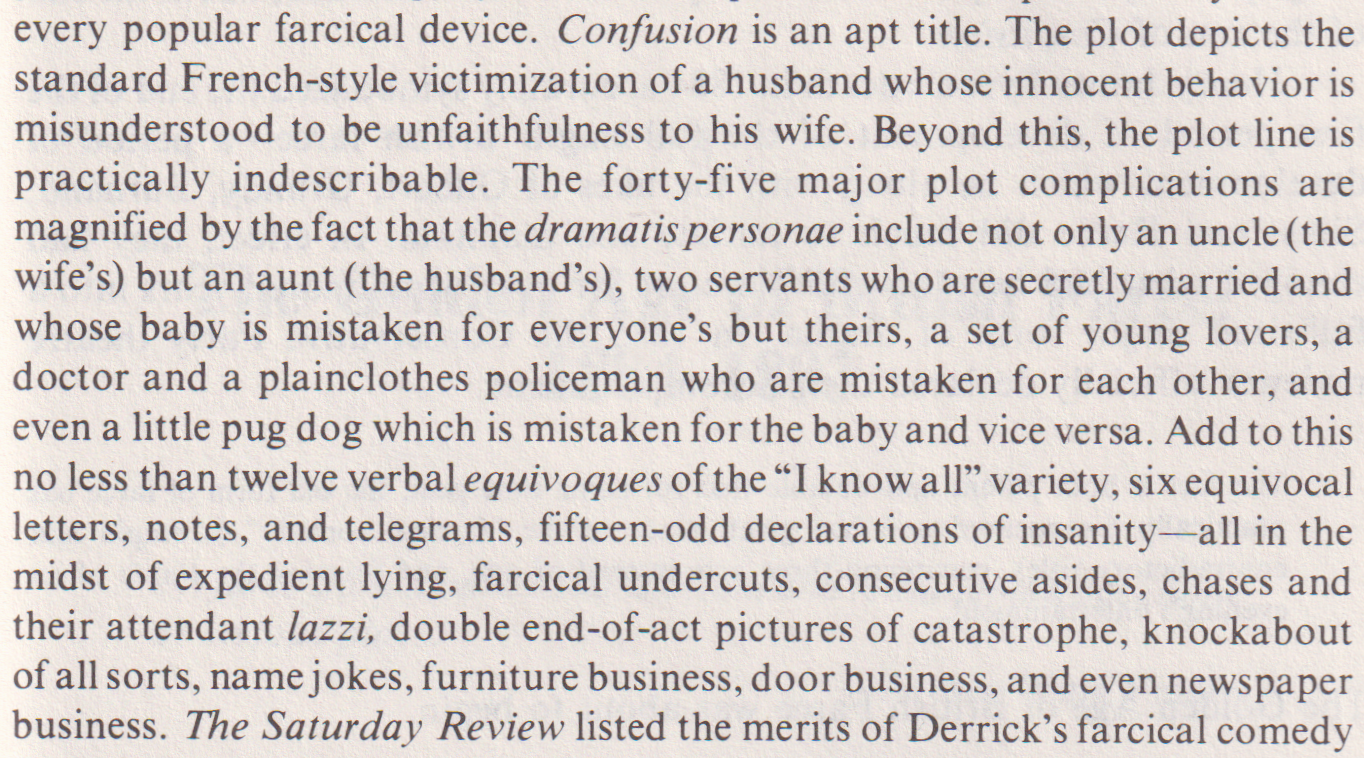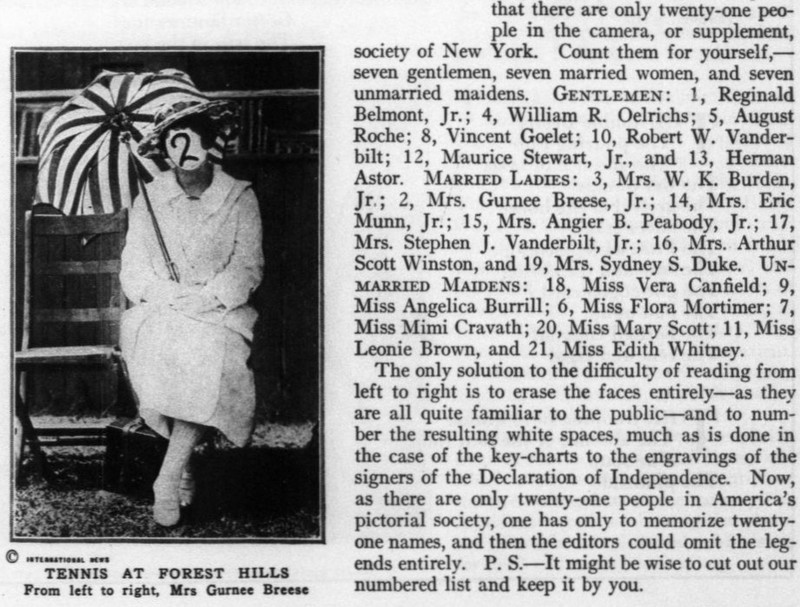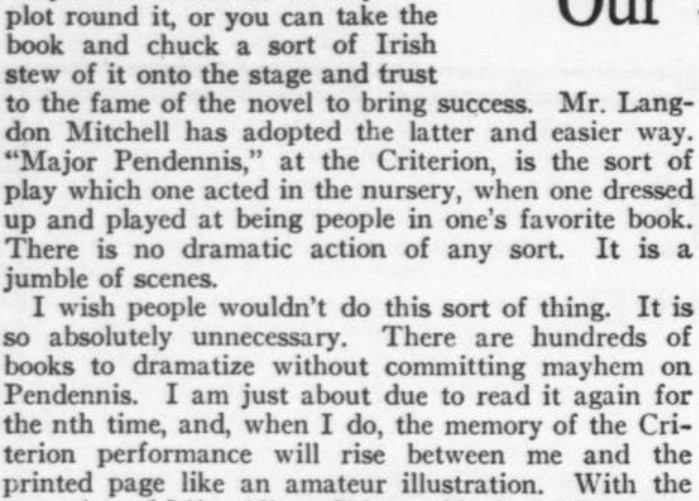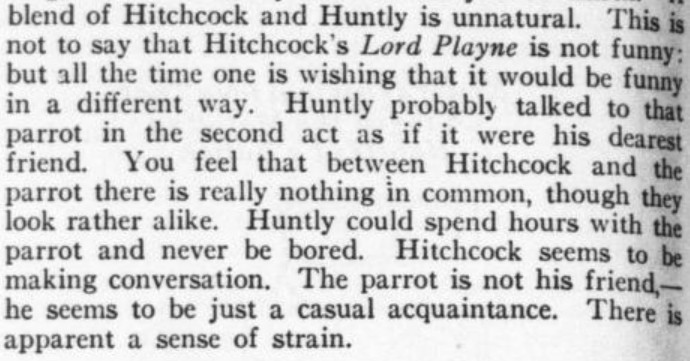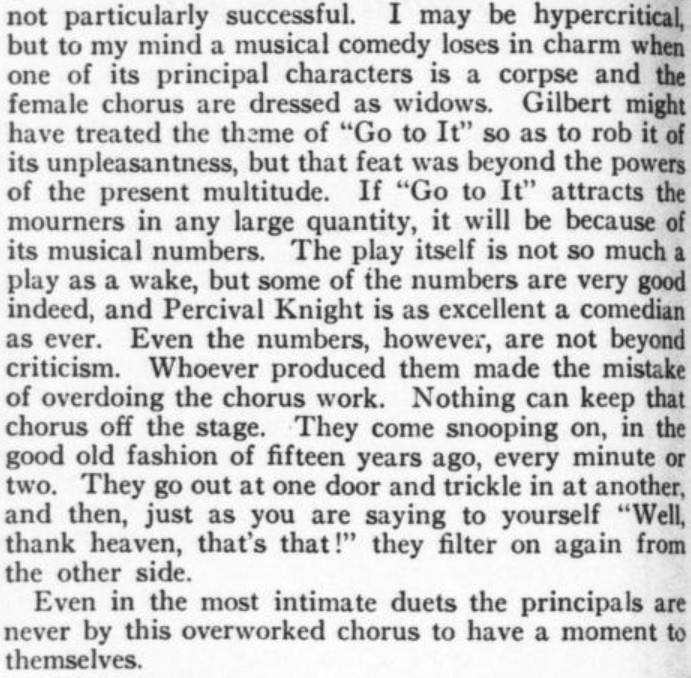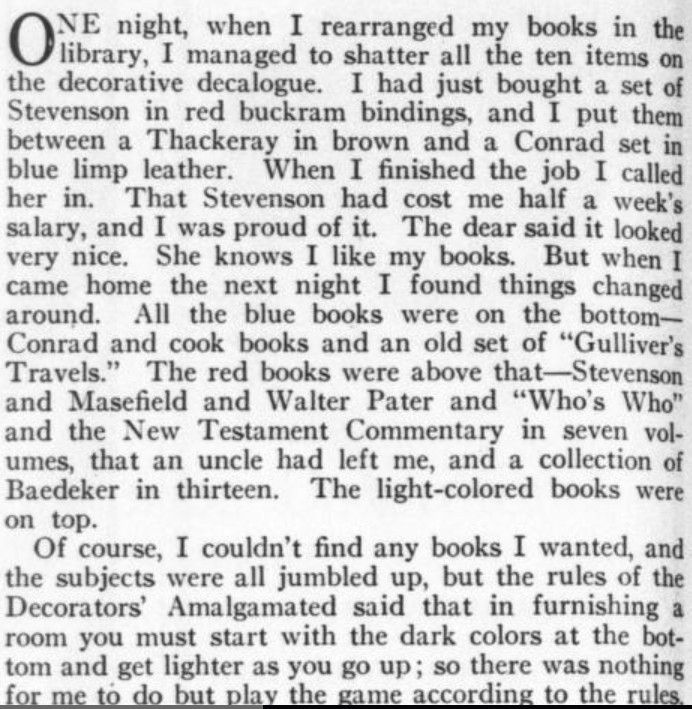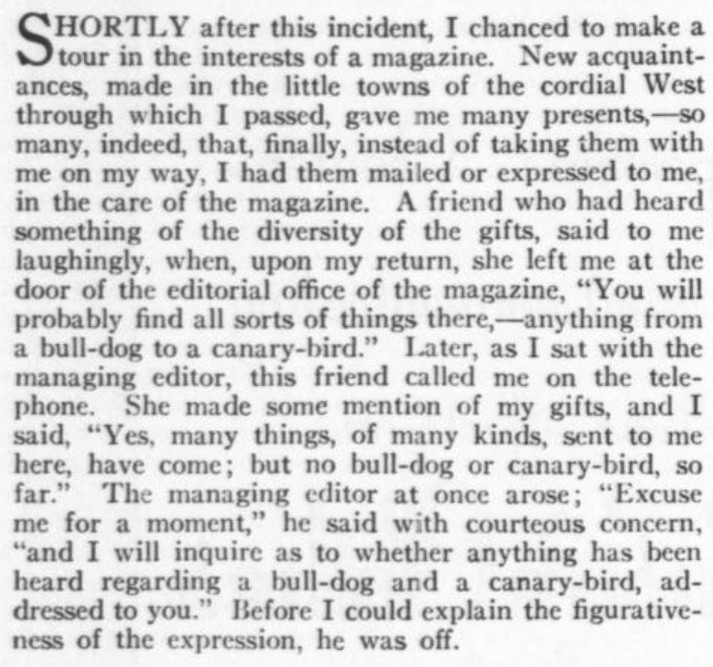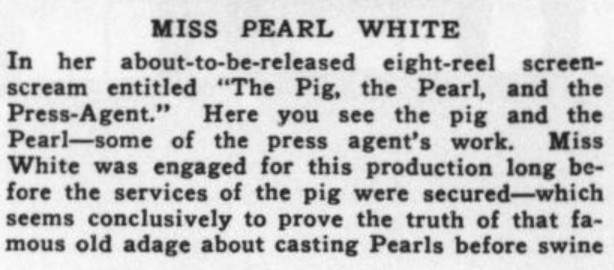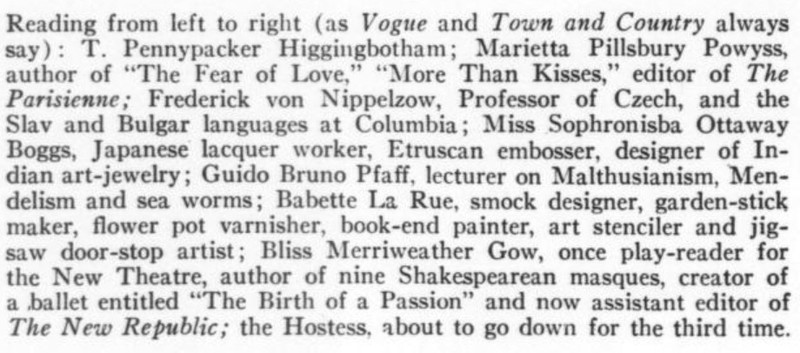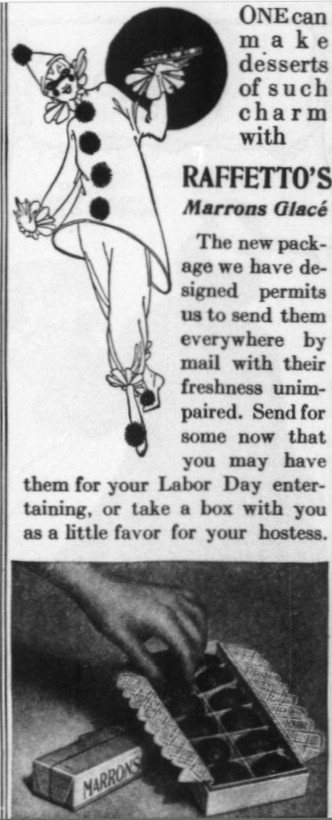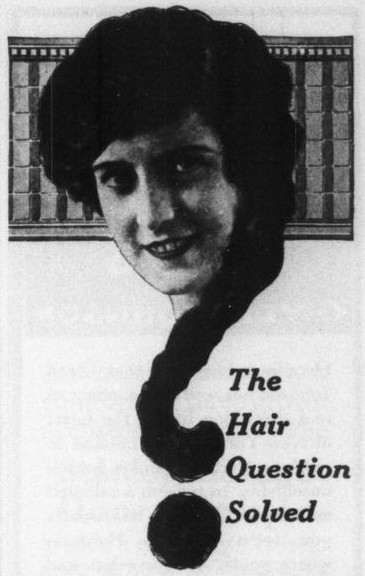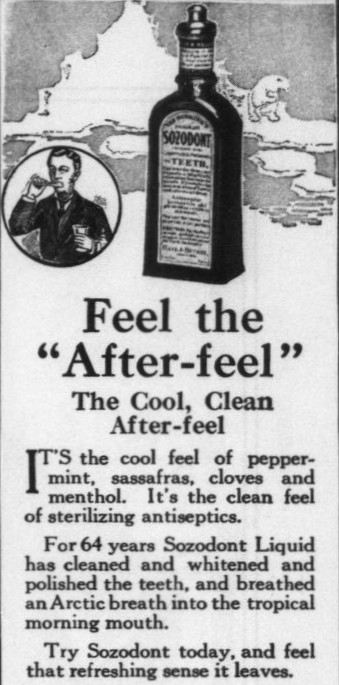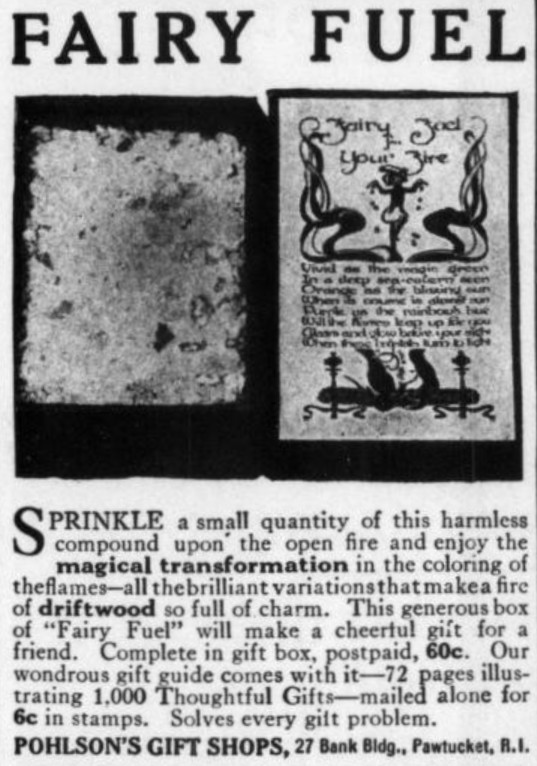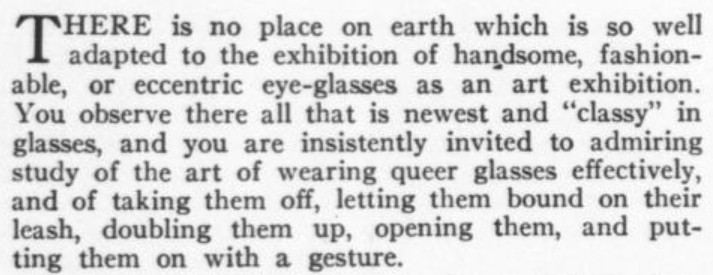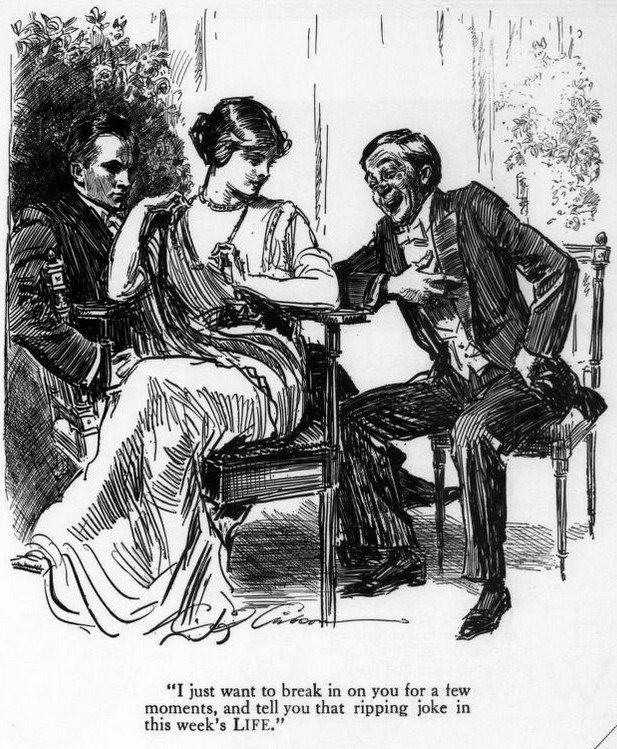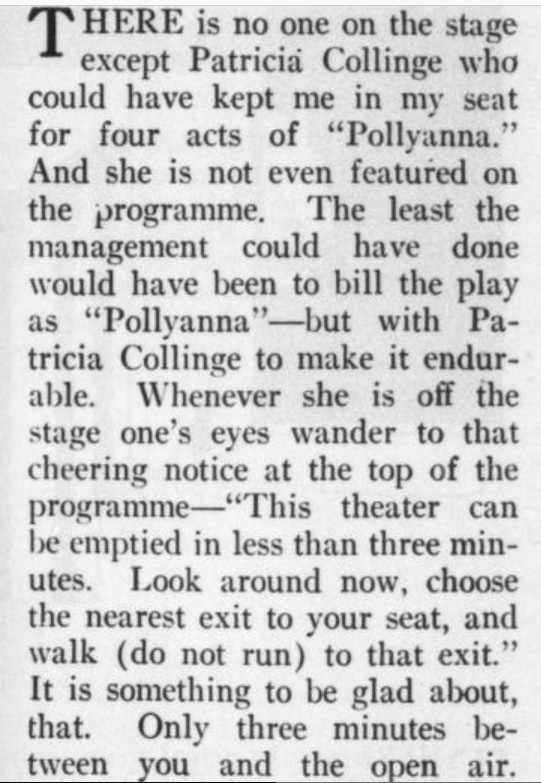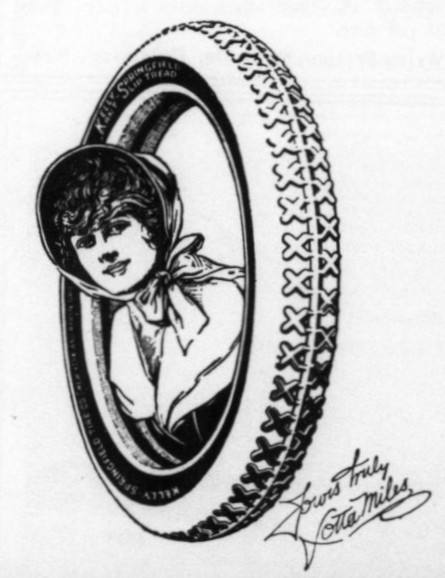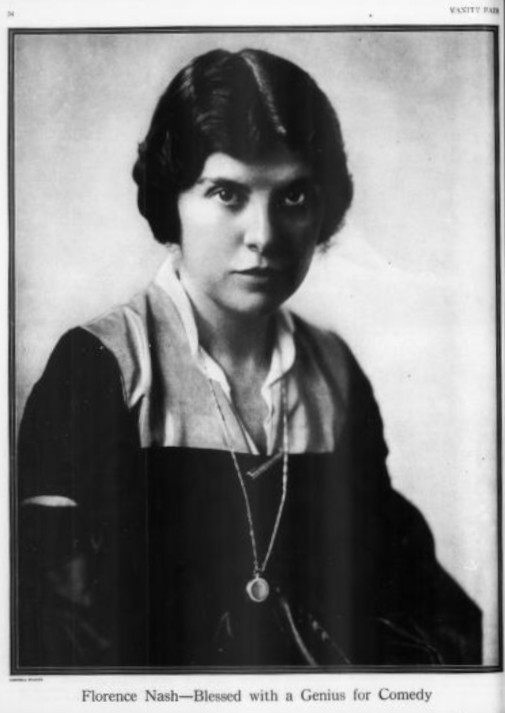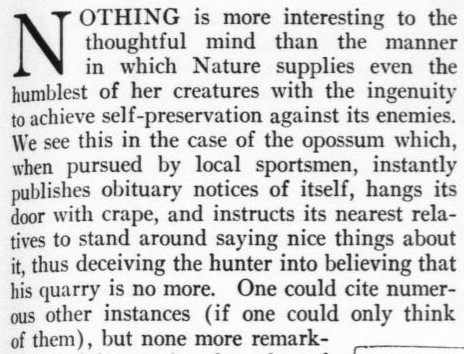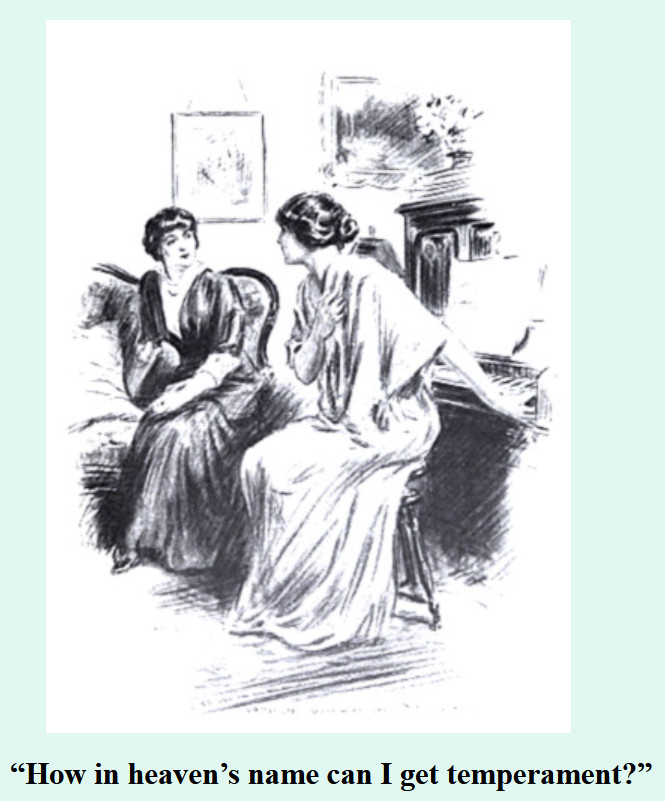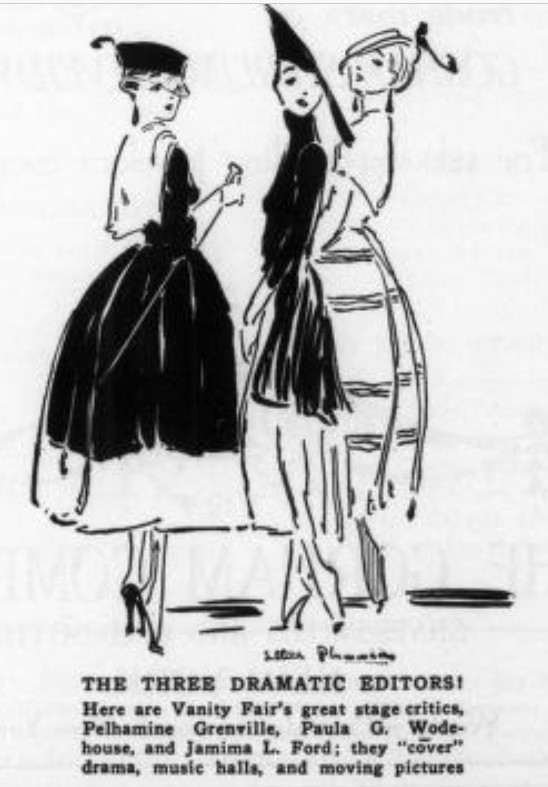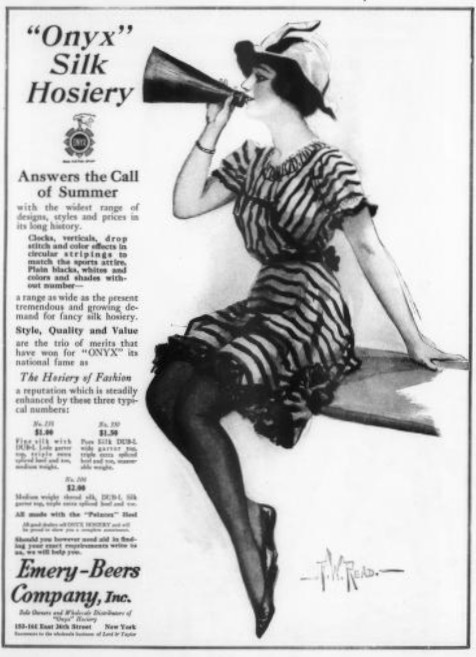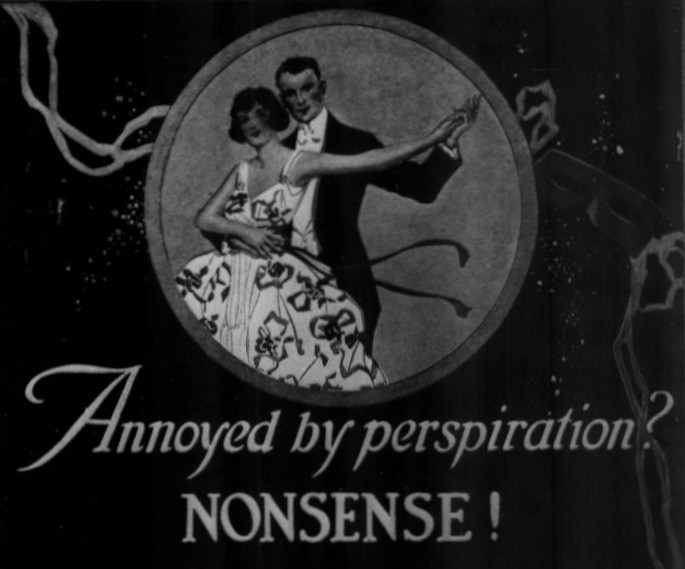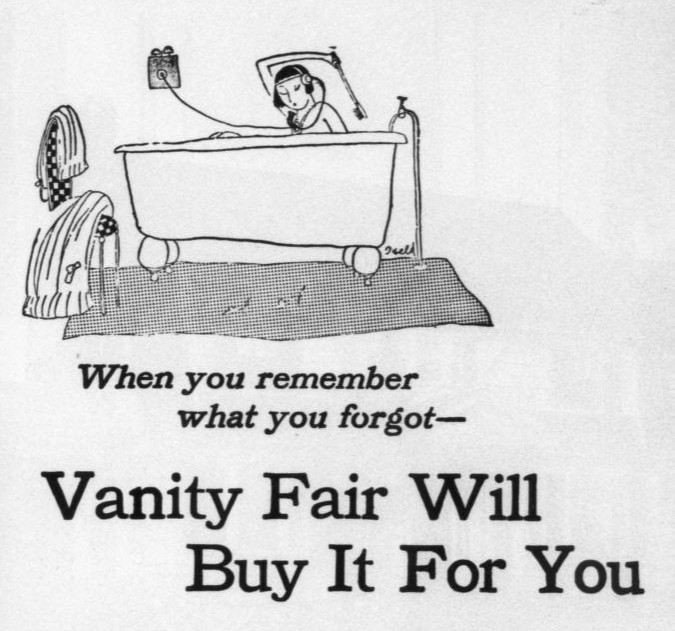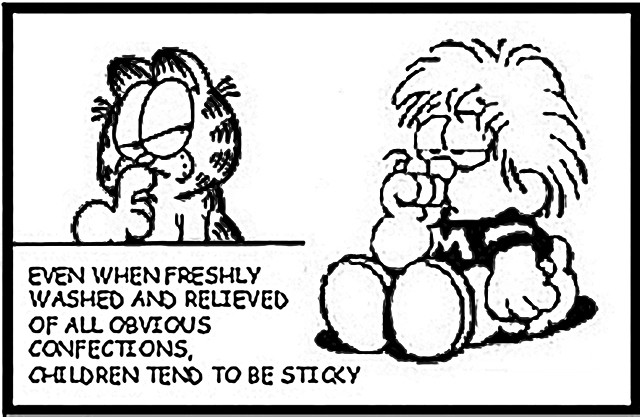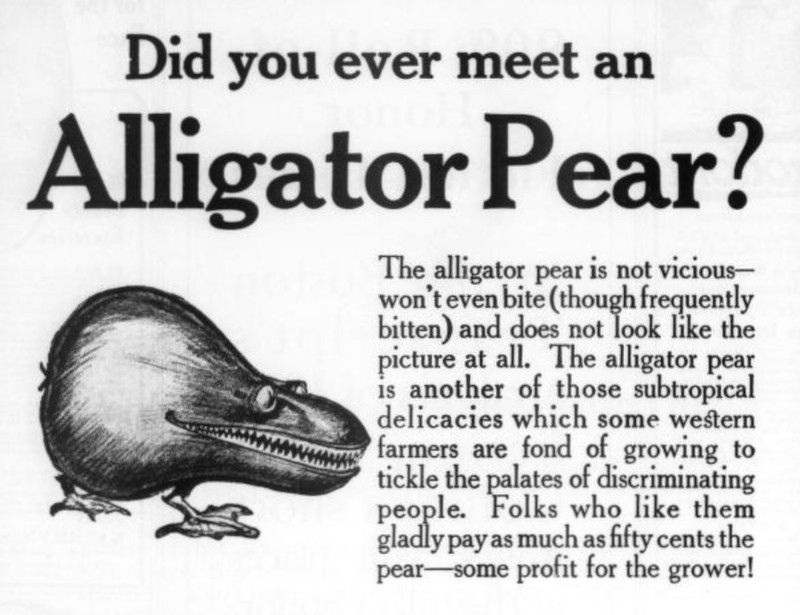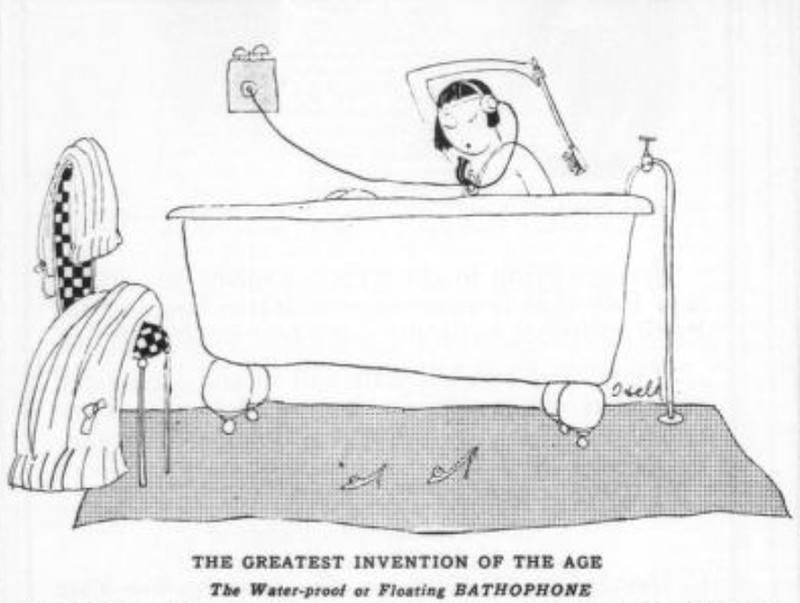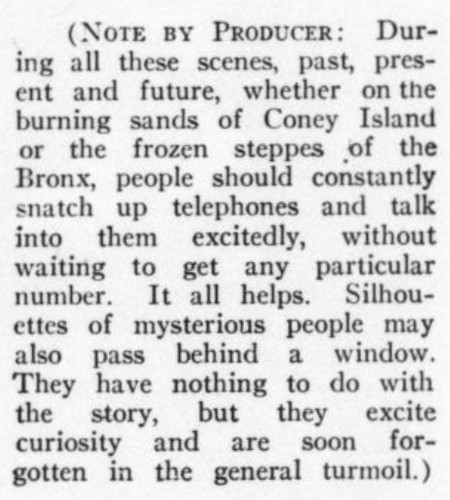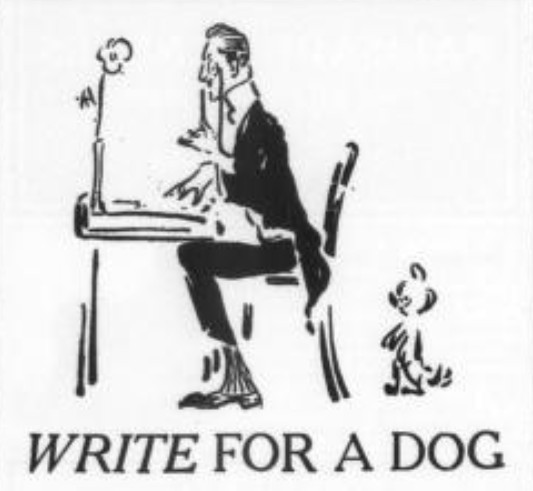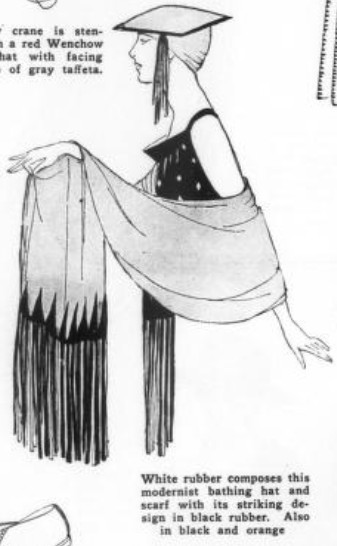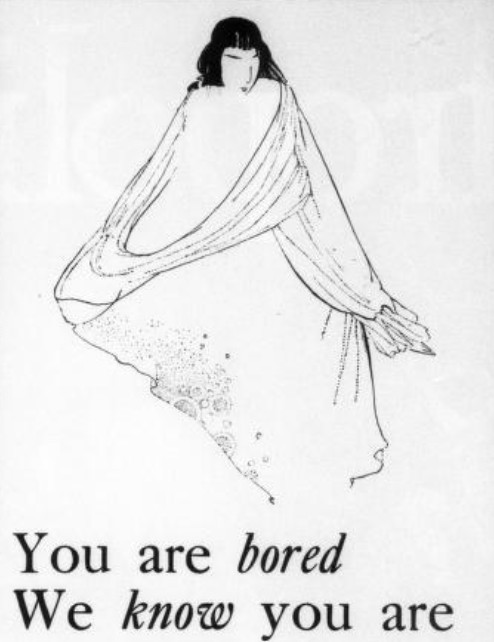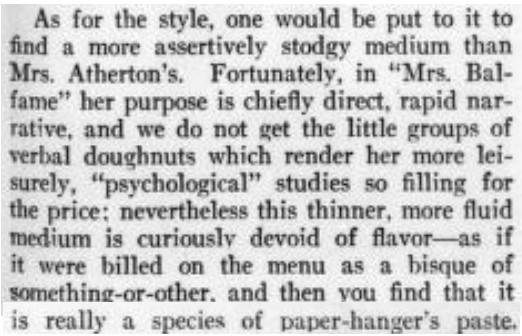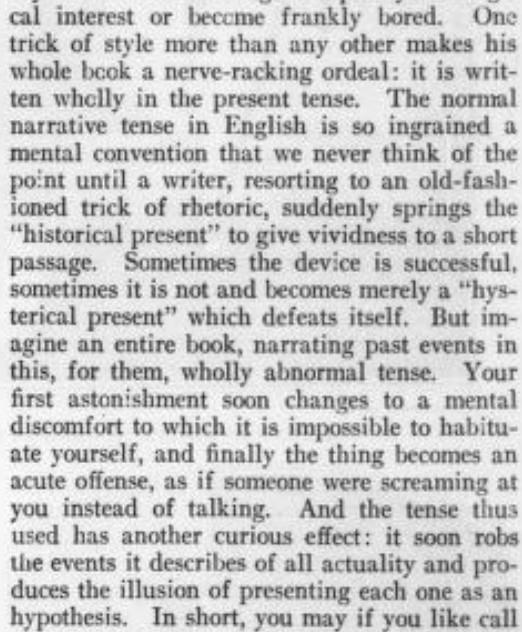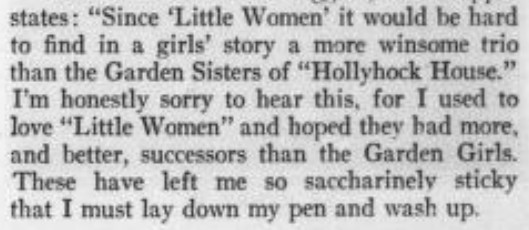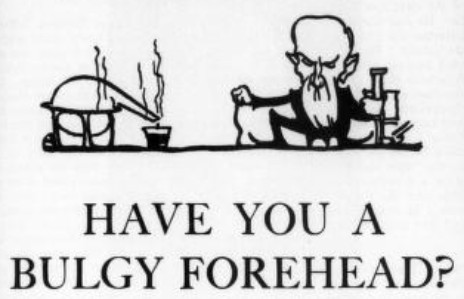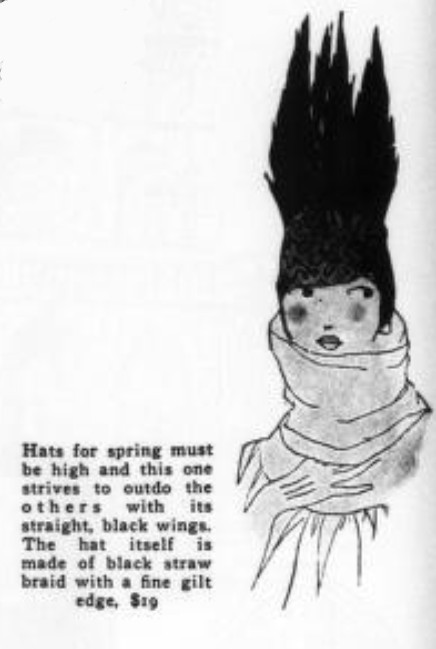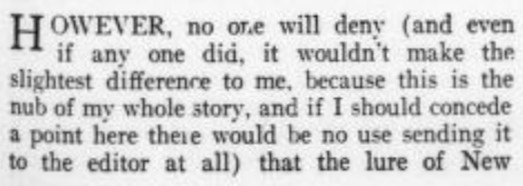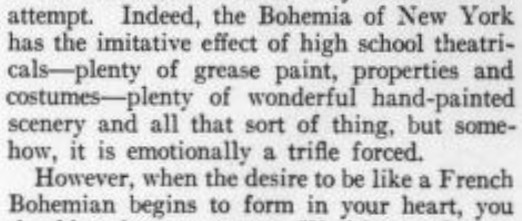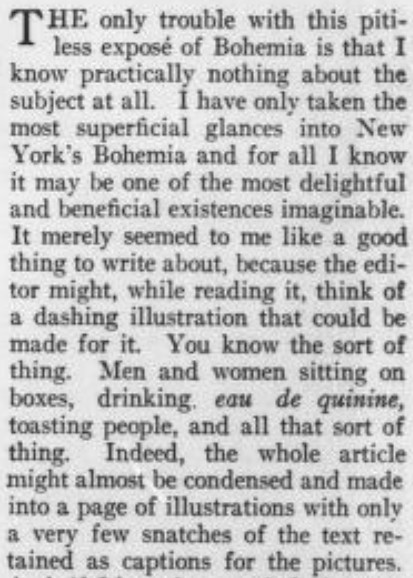|
|
 |
 |
 |
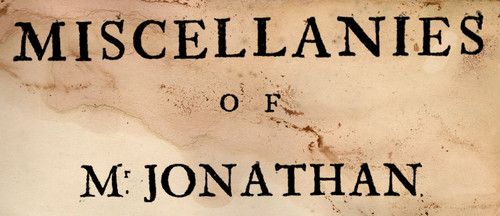
unearths some literary gems.
From Late Victorian Farce, by Jeffrey H. Huberman:
***
The windows and especially the doors of an enclosed set (in contrast to the open pathways of flat wings) provided a physical and audible mechanism for allowing characters bearing complications to appear or disappear with a literal bang....The doors of a box set...served as concrete representations of suspense through which a character might burst at any moment, sending the plot off in a new, frantic direction.
***
[A few more snippets attached--as you'll see, the farce scholar likes to do the math! It's also fun to encounter new-to-me terminology for familiar devices, e.g., "object-chase" and "parrot speech." Btw, I sought Confusion online and began reading it, but imo it didn't live up to this synopsis. As with Victorian farces I've explored in the past, the dramatis personae (including, in this instance, Mortimer Mumbleford, Christopher Blizzard, and Miss Lucretia Tickleby) were pretty much the highlight.]
[Bonus: I notice that a play called The Great Pink Pearl debuted, appropriately enough, at the Strand.]
|



 |
|
|
 |
 |
 |

unearths some literary gems.
Highlights from Vanity Fair, December 1916:
Harry Grant Dart (who it seems was better known as a cartoonist) has a humor piece about being a perpetual "extra man" for formal dinners. Two snippets attached, and here's a bonus: "Mrs. Effington-Smith" (which I'd call an effing good made-up name).
Then Wodehouse (if my guess is correct as to who the pseudonymous author really is) does the math on reading from left to right. (Cf. moments in the PGW canon such as, "Reading from left to right, the contents of the bed consisted of Pauline Stoker in my heliotrope pyjamas with the old gold stripe.") Three additional snippets come from PGW's theater pieces.
The snippet about literalness was the highlight, imho, of a full piece in defense of literal-minded people; but if you want to view that in its entirety, it's here:
https://archive.org/details/sim_vanity-fair_1916-12_7_4/page/160/mode/2up?view=theater
I thought you might enjoy seeing a bit about books arranged by spine color in the 1916 wild; finally, my own math tallies three Franks in Colby's headline: his name, his confessions, and (via the historical Franks) the French.
|



 |
|
|
 |
 |
 |

unearths some literary gems.
|


 |
|
|
 |
 |
 |

unearths some literary gems.
I liked this piece:"Oratorical Platformation"https://archive.org/details/sim_vanity-fair_1916-08_6_6/page/46/mode/2up?view=theaterMore tidbits attached. "Lotta Miles" is, technically, left over from the last issue--but, heck, she'll probably show up again in September, so who's counting? The Judge magazine ad copy was funny to me because, hey, you name your periodical "Judge," then feel obliged to bend over backward explaining how nonjudgmental it is. And here's what I said about the Florence Nash portrait on Facebook:Please know that I'm not mocking anybody's "resting face" when I say that, given the sober, thoughtful expression in this nice portrait photo, the caption writer is inviting wisecracks. I might have revised it to "blessed with a genius for comedy [not shown]"; or maybe "blessed with a genius for very, very dry, deadpan, understated comedy, which, when you build up to it in the right way in a well-engineered context, can be highly amusing indeed." Looking at other photos of Nash from this earlier part of her career, she does generally look pretty deadpan. I can't find relevant film footage (the famous movie that she's in was from much later), but it would be interesting to see if she deadpanned through everything à la Buster Keaton. If she was famous enough as a deadpan comedian at the time this magazine came out (1916) that the audience would already be familiar with that personality, then maybe the caption writer did fine. It's not the caption writer's fault that, 100+ years later, I know who Keaton was but not who Nash was!
|

 |
|
|
 |
 |
 |

unearths some literary gems.
[This was the last Hichens in my queue--yet another study of characters who cultivate silly behavior for its own sake. Where "Berkeley Square" was delightfully lighthearted and "Carnation" was calculatingly cynical, this novelette was ultimately sad and depressing. But snippets, hey, I'll take 'em. (:v>]
***
While Mr. Lane hunted adjectives, and ran sad-sounding and damnatory substantives to earth...
***
“I wonder whether the supremacy of Eustace Lane is moral, or intellectual, or—neither?” said Winifred. “There are so many different supremacies, aren’t there? I suppose a man might be supreme merely as a—as a—well, an absurdity, you know.”
Jenny smiled the watery smile of the sentimentalist; a glass of still lemonade washed with limelight might resemble it.
***
The newspapers occasionally mentioned him as a dandy, a fop, a whimsical, irresponsible creature, yet one whose vagaries were not entirely without interest. He had performed some extravagant antic in a cotillon, or worn some extraordinary coat. He had invented a new way of walking one season....
***
He soon began...to reduce buffoonery to a modern science.
***
In fact, they supposed he must be a genius because he was erratic. Many people are of the same opinion, and declare that a goose standing on its head must be a swan.
***
What is a modern smart wedding but a second-rate pantomime?
***
Kite-flying in London seemed an odd notion. Was it lively and entertaining, or merely silly? Which ought it to be?
***
|




 |
|
|
 |
 |
 |

unearths some literary gems.
[As you might gather from these snippets (or already know), this book goes to town spoofing Oscar Wilde et al. Taken as a whole, alas, the novel is rather nasty (and probably homophobic), but this is my pick of the more innocently amusing bits.]
***
"I think the art of losing things is a very subtle art. So few people can lose anything really beautifully. Anybody can find a thing. That is so simple."
***
"Men always fall into the absurdity of endeavouring to develop the mind, to push it violently forward in this direction or in that. The mind should be receptive, a harp waiting to catch the winds, a pool ready to be ruffled, not a bustling busybody, forever trotting about on the pavement looking for a new bun shop."
***
"She is a good woman, Reggie, and wears large hats."
***
"I am unchanged. That is really the secret of my pre-eminence. I never develop. I was born epigrammatic, and my dying remark will be a paradox."
***
She rustled away with weary grace, rattling delicately a large bunch of keys that didn't open any thing in particular. They were a part of her get up as a country hostess.
***
"I am perpetually meeting her, and she always asks me to lunch, and says she knows my brother. She seems to connect my poor brother with lunch in some curious way."
***
"Some of them even labour under the wild impression that...Mr. George R. Sims—what would he be without the initial?—is a minor poet."
***
His wittiest jokes, nude, no longer clad in the shadowy garments of more or less conventional propriety, danced like bacchanals through the conversation, and kicked up heels to fire even the weary men of society.
***
"He fascinates by being sedulously unexpected. Listen to his anthem. He is beginning to play it. How unexpected it is. It always does what the ear wants, and all modern music does what the ear does not want. Therefore the ear always expects to be disappointed, and Lord Reggie astonishes it by never disappointing it."
***
He was holding up a table-spoon filled with marmalade to catch the light from a stray sunbeam that filtered in through the drawn blinds, and wore a rapt look, a "caught up" look, as Mrs. Windsor would have expressed it.
"Good morning," he said softly. "Is not this marmalade Godlike? This marvellous, clear, amber glow, amber with a touch of red in it, almost makes me believe in an after life. Surely, surely marmalade can never die!"
"I must have been mistaken," Mrs. Windsor thought, as she expressed her sense of the eternity of jams in general in suitable language.
***
"I suppose it is always difficult not to take oneself seriously."
"I do not find it so. My mental proceedings generally strike me as the best joke I know."
***
"Mr. Amarinth is generally amusing."
"Yes, he has got hold of a good recipe for making the world laugh and think him clever. The only mistake he makes is, that he sometimes serves up only the recipe, and omits the dish that ought to be the result of it altogether. One cannot dine off a recipe, however good and ingenious it may be. It is like reading a guide-book at home instead of travelling."
***
"It is like the garden scene of 'Faust.' Martha ought to come on now with Mephistopheles. Ah! here are Mrs. Windsor and tea. They will have to do instead."
***
She still wore her big and shady hat. She declared it made her feel religious, and nobody was prepared to dispute the assertion.
***
"We are so frightfully punctual that I feel quite like an early Christian. I wonder why the Christians were always so early before we were born? They are generally very late now."
"I suppose they have grown tired," he answered, arranging the carnation in his buttonhole meditatively. "Probably we suffer from the activity of our forefathers. When I feel fatigued I always think that my grandfather must have been what is called an excellent walker."
***
"People who have nothing to say always do preach long sermons, don't they? They keep hoping they will have something to say presently, I suppose."
"And they hope out loud," said Madame Valtesi.
***
"Don't any of you stare at him while he is singing," he said, "or he will get sharp. He always does; I have noticed it."
"What a pity staring does not have that effect upon all of us," said Madame Valtesi. "London would be quite brilliant. I have looked at people for hours, but they have never got sharp."
[later]
The anthem passed off fairly well, although Jimmy Sands went rather flat, perhaps owing to the fact that none of the party from the cottage so much as glanced at him during his performance.
"He evidently made allowance for our staring," Madame Valtesi said afterwards.
[I think that may be my favorite bit in the book!]
***
Ever since he had made a name for himself by declaring that he was pleased with the Equator, and desired its further acquaintance, he had been talked about. Whenever the public interest in him showed signs of flagging he wrote an improper story, or published an epigram in one volume, on hand-made paper, with immense margins, or produced a play full of other people's wit, or said something scandalous about the North Pole. He had ruined the reputation of more than one eminently respectable ocean which had previously been received everywhere, and had covered Nature with confusion by his open attacks upon her.
***
[I know you and stiches in time go back a long way.]
"How can I talk?" she replied. "Don't you see that I am knitting?"
"Are you doing a stitch in time, the sort of stitch that is supposed to rhyme with nine?"
***
"Afterwards in the drawing-room he gave a lecture. I rather forget the subject, but I think it was, 'Eggs I have known.' He knew a great many."
***
"Esmé, you are talking nonsense!" Madame Valtesi said, dropping two more stitches with an air of purpose.
"I hope I am. People who talk sense are like people who break stones in the road: they cover one with dust and splinters."
***
"Really clever men never wear spectacles. Wearing spectacles is the most played-out pose I know."
***
"Is it nearly tea-time, Mrs. Windsor?" he added, as she came up, a little flushed with under exertion. "I only ask because I am not thirsty. Tea is one of those delightful things that one takes because one does not want it."
***
"Are you ever excited?" asked Lady Locke.
"Sometimes, when I have invented a perfect paradox. A perfect paradox is so terribly great. It makes one feel like a trustee. Can you understand the sensation? Have you ever felt like a trustee?"
"I don't think I have," Lady Locke said, laughing.
"Then, dear lady, you have never yet really lived."
***
"The world is even surprised when Mr. Gladstone is found to have been born in several places at the same time—as if he would be born at different times!"
***
[Precursing Fran Lebowitz, as immortalized in one of my Garfield-Lebowitz mashups of yore (see attached).]
"Children are very sticky," she remarked. "I am glad I never had any."
"Yes," said Madame Valtesi; "they are as adhesive as postage-stamps."
***
|







Page 21 of 64

> Older Entries...

Original Content Copyright © 2025 by Craig Conley. All rights reserved.
|




